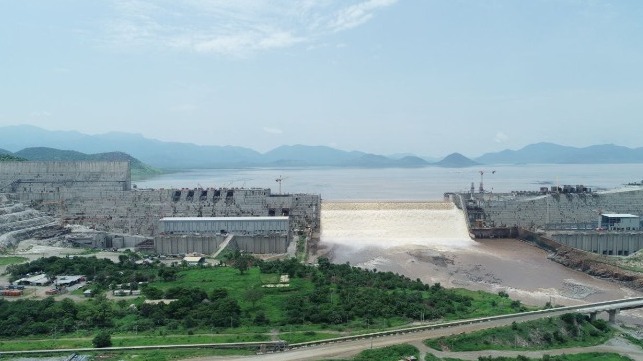
[By Amin Saikal]
The Middle East is one of the driest regions in the world. The scarcity of water has often been touted as a source of national and interstate disputes in the area. Some scholars have predicted for some time the possibility of deadly national altercations and regional clashes over the distribution of water resources in parts of the region. Although no full-blown war has erupted so far, two current episodes illustrate this point: public protests in the Iranian province of Khuzestan and the growing discord between Ethiopia, Egypt and Sudan over water dispensation from the Nile River. With climate change causing more droughts, the potential for conflict over water cannot be underestimated.
In recent days, the oil-rich southwestern province of Khuzestan, largely populated by Iran’s Arab minority, has experienced public protests over a shortage of water as the province and all of Iran have been hit by one of the worst droughts in modern times. The protests have rapidly spread into other parts of Iran, which has come on top of the damage wrought by Covid-19 and US sanctions. Public anger is mounting against the Iranian government, which has been unable to provide remedial responses. The security forces’ heavy-handed treatment of the protesters has resulted in several deaths, with many injured and scores arrested.
While Iran is unlikely to go to war over water with any of its neighbors, the same cannot be firmly said about some of those downstream on the Nile River—the second longest, if not the longest, river in the world, yet with a relatively small reservoir capacity. Ethiopia has been getting closer to a serious dispute with Egypt and Sudan ever since Addis Ababa decided in 2011 to build what it calls the hydroelectric Grand Renaissance Dam for securing more water for developmental purposes. Egypt, which regards the Nile River as its ‘lifeline’, and Sudan, which has concerns about the security of its own supply, have seriously objected to Addis Ababa’s unilateral start of the second phase of the dam project.
The filling of the reservoir of the second phase over a period of two years will affect the amount of water to which Egypt claims to be entitled. Under a bilateral Egypt–Sudan agreement in 1959, the two sides agreed to increase Egypt’s share to 55.5 billion cubic metres and Sudan’s to 18.5 billion. But the agreement isn’t recognized by Ethiopia. It has refused to budge on its determination to go ahead with the second phase, irrespective of serious objections by Cairo and Khartoum.
US mediation in 2020 and ongoing similar action by the African Union have failed to produce any result. In early July 2021, the issue was put to the United Nations Security Council to consider one submission by Ethiopia and another by Egypt and Sudan for a resolution. But a conclusion couldn’t be reached. One of the council’s permanent members claimed that the body didn’t have sufficient expertise to deal with the issue. The council as a whole urged the three parties to avoid unilateral action and reach a negotiated settlement. In a recent article, former Egyptian foreign minister and ambassador to the US Nabil Fahmy warned that ‘sooner or later confrontation seems inevitable, unless we see a sudden and unexpected change in Ethiopia’s position’.
Fahmy has echoed a view that a number of scholars have held about the future possibility of war in the Middle East over water rather than oil. Miriam Lowi’s 1995 book, Water and power, is very telling. The Khuzestan and Ethiopian dam episodes alert us to the urgency of yet another issue that adds to volatility in the Middle East while the tragedy of climate change remains unaddressed.
Amin Saikal is adjunct professor of social sciences at the University of Western Australia, author of “Iran rising: the survival and future of the Islamic Republic, and editor of Iran and the Arab world: a turbulent region in transition.”
This article appears courtesy of The Strategist and is reproduced here in an abbreviated form. It may be found in its original form here.
SOURCE READ THE FULL ARTICLE
https://www.maritime-executive.com/editorials/ethiopia-s-dam-raises-possibility-of-water-conflict-on-the-nile